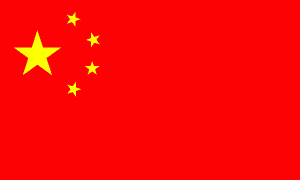 China has revised its legal framework to promote compulsory licenses for patented medicines to meet public health needs. The government is considering issuing a compulsory license for tenofovir, a medicine recommended for first line treatment of HIV/AIDS, which is sold under the brand name Viread by Gilead. As reported by Reuters, the Chinese chemical firms export many of the active pharmaceutical ingredients used by branded pharmaceutical firms, which then “sell the patented finished products back to China at prices which the average Chinese citizen often cannot afford.”
China has revised its legal framework to promote compulsory licenses for patented medicines to meet public health needs. The government is considering issuing a compulsory license for tenofovir, a medicine recommended for first line treatment of HIV/AIDS, which is sold under the brand name Viread by Gilead. As reported by Reuters, the Chinese chemical firms export many of the active pharmaceutical ingredients used by branded pharmaceutical firms, which then “sell the patented finished products back to China at prices which the average Chinese citizen often cannot afford.”
The new law would clarify that compulsory licenses can be issued to address health emergencies, unusual circumstances, or the interests of the public. (The Chinese IP office told Reuters that the “revised versions of Measures for the Compulsory Licensing for Patent Implementation came into effect from May1, 2012.”)
Though the move may provoke controversy, as previous compulsory licenses by large middle income countries have angered branded pharmaceutical companies and developed country governments, the move does not violate TRIPS. Kajal Bhardwaj of the Indian Lawyer’s Collective noted that “[Compulsory licenses] have previously been issued in the region by Malaysia, Indonesia, Thailand and India. CL’s have also been issued on multiple occasions by developed countries including the U.S. and EU member countries.”
For more information:
- Tan Ee Lyn for Reuters. “China changes patent law in fight for cheaper drugs.”
- Al Jazeera. “China to license copies of patented medicines.”




